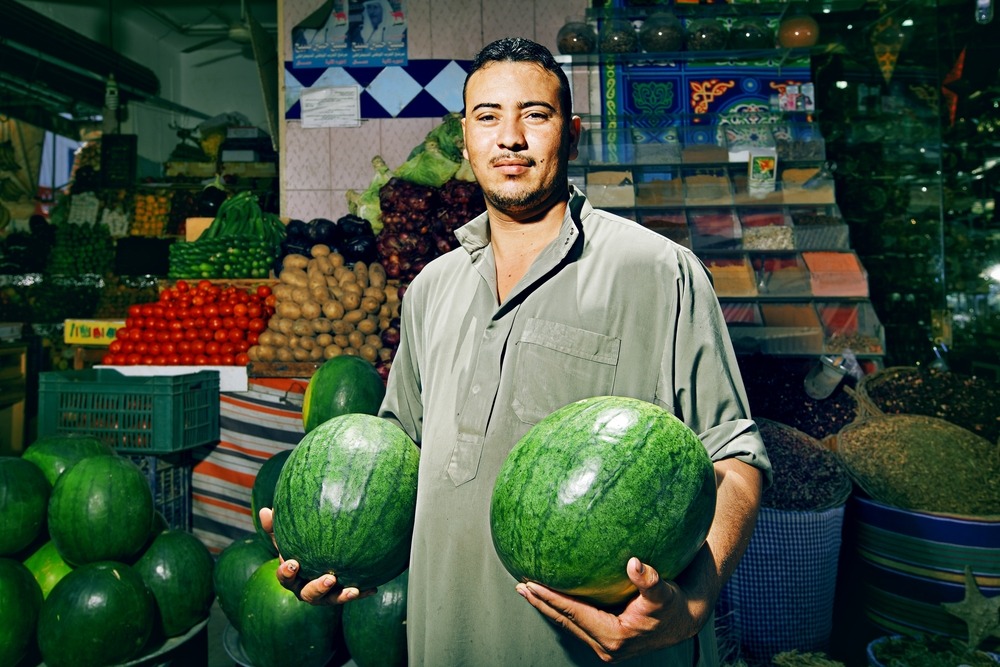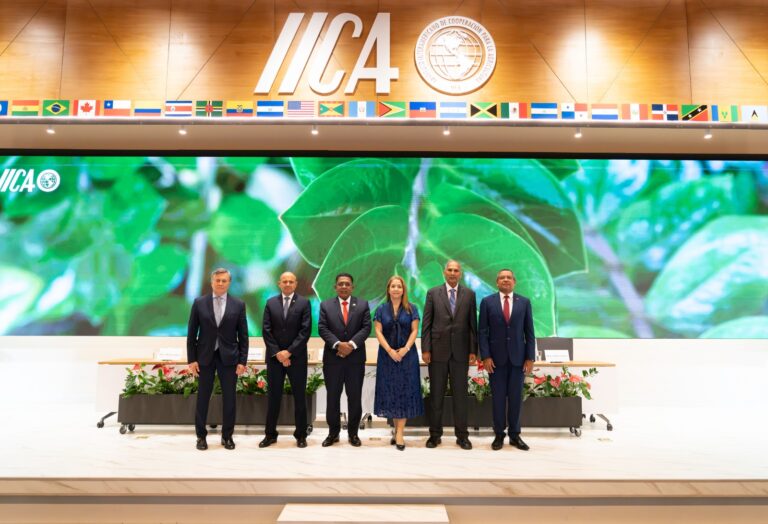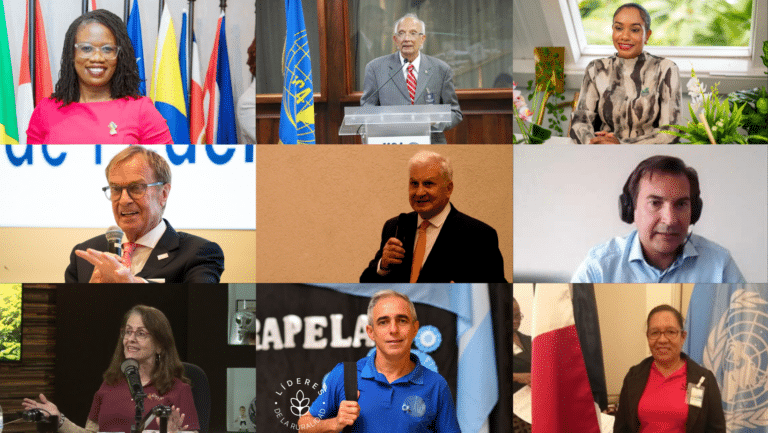Enhancing the role of family farming and spurring intraregional trade will also be critical, maintained IICA’s Director General, in addressing an online forum organized by the Central American Federation of Agricultural and Agroindustrial Chambers (FECAGRO).

San Jose, 27 April 2020 (IICA). Manuel Otero, Director General of the Inter-American Institute for Cooperation on Agriculture (IICA) argued that if Central America and the Dominican Republic are to overcome challenges in the agrifood sector resulting from the pandemic, they must concentrate efforts on guaranteeing food supplies for the vulnerable population; strengthening short-circuit trade; spurring intraregional trade and placing greater emphasis on health and safety.
The fall-out from Covid-19 in the agrifood sector of these countries, members of the Central American Federation of Agricultural and Agroindustrial Chambers (FECAGRO), was the focus of an online forum, organized in conjunction with IICA.
Otero was a member of the panel of experts in the forum, alongside María Elena Varas, Head of the World Economic Forum’s Regional Partnerships for Food Systems, and Juan Rafael Lizano, President of Costa Rica’s National Agricultural and Agoindustrial Chamber and a member of FECAGRO’s Board of Directors.
“We must guarantee agricultural production sustainability and reinforce the role of family farming, international trade and the transit of goods”, said IICA’s Director General, “while placing emphasis on areas such as e-trading; the contraction of exports of agricultural and food products, as well as inputs, versus the high import demands for these goods; and strengthening of the value chain, from production to the point at which the population accesses the food”.
Otero insisted that, “There must be close attention paid to financing, indebtedness and credit moratoriums for the agriculture sector, in addition to economic and tax incentives. We must ensure significant levels of prospective health intelligence and surveillance, as this new era will come with other surprises and we must continue to abide by rules and requirements, without inventing non-tariff barriers”.
The head of the Institute, which specializes in international cooperation for the agriculture sector, maintained that it is fundamental that the region leverage its capacity to produce basic foods such as grains, cereals, tubers, meats, dairy products, oils and sugars, since the crisis has led to “changes in the nature of the demand”.
During the online forum, Otero remarked that to resolve these challenges we must move towards a digital agriculture sector that fosters innovation and greater use of technology and science.
He also remarked that it is now time to recognize agriculture and rurality as a strategic sector, for once and for all.
“Let’s stop pointing the finger at the agriculture sector”, he concluded, “blaming it for a myriad of problems. We must ask for its support, as we attempt to defend it as a strategic sector that requires long-term policies, budgets and related human resources, for which the involvement of public, private and civil society partners will be critical. The greater the crisis, the greater the need for international cooperation”.
On the other hand, the World Economic Forum’s María Elena Varas commented that, “There is a sense of urgency to take immediate action and to build systems that are more resilient in the long-term, not only to respond to the challenges of Covid-19, but also to future shocks. The focus is on developing sustainable, inclusive, efficient, nutritional and healthy food systems, aligned with the Sustainable Development Goals”.
Juan Rafael Lizano, of FECAGRO, indicated that products such as coffee and sugar are attracting very low prices and flowers, ornamental plant and foliage, cantaloupe, pineapple, watermelon and mango have suffered the brunt of the Novel Coronavirus crisis.
“What concerns me the most and what seems to be most unsure are the markets”, said Lozano. “What we need is to have access to markets where we can sell our products”.
More information:
Institutional Communication Division.
comunicacion.institucional@










